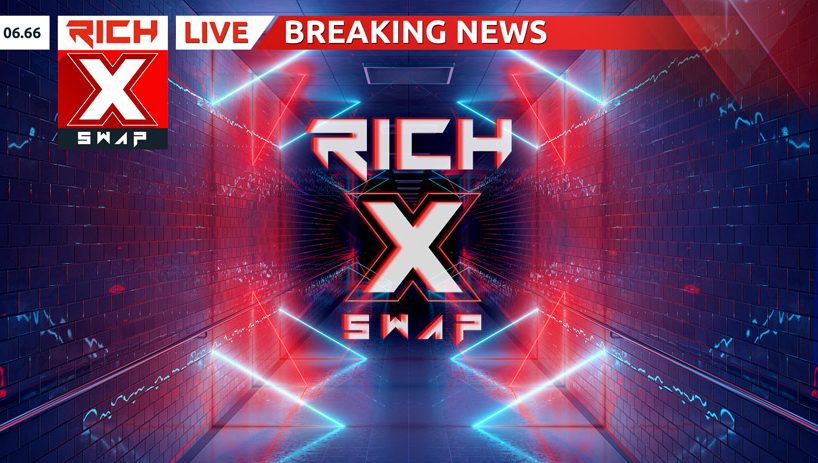
The infrastructure bill includes new provisions about crypto.
► $25 of Bitcoin when you buy $100: https://gemini.sjv.io/Andrei
► $10 of Bitcoin from Coinbase: https://coinbase-consumer.sjv.io/RyP6ra
► My Stock Portfolio + Stock Tracker: https://www.patreon.com/andreijikh
► Get 2 FREE stocks valued up to $1850 (when you deposit $100): https://act.webull.com/kol-us/share.html?hl=en&inviteCode=QhhB1aDNwEDP
► ROBINHOOD (Get 1 Stock When You Sign Up): https://robinhood.c3me6x.net/c/1980551/671816/10402
► Open A Roth IRA: https://m1finance.8bxp97.net/c/1980551/696710/10646
► Follow Me On Instagram: https://www.instagram.com/andreijikh/
► How I Protect My Bitcoin: https://shop.ledger.com/pages/ledger-nano-x?r=535643c13ab0
My PO Box:
Andrei Jikh
4132 S. Rainbow Blvd # 270
Las Vegas, NV 89103
President Joe Biden just signed the new infrastructure bill. Here is what it means for us as crypto investors. First let’s talk about what he’s trying to fix.
INFLATION REPORT:
In the last year – from October 2020 to October 2021, here is how much things have gotten more expensive.
Shelter is up 3.5% – this is huge because shelter represents 32.5% of the weight of how we measure inflation, 3.5% is significant. Food like meat, chicken, fish, and eggs is up 11.9%, insane. Utilities like electricity went up 6.5%, our gas bill has gotten 28.1% more expensive. New cars are up 9.8%, used cars are up 26.4%, rental cars are up 39.1%. Insbut we’re not done, insurance for cars up 6.3%. Maintenance up 5.4%, gas for cars is up 49.6%. Restaurant food is up 5.3%, and hotels up 25.5%. The point is, everything has gotten significantly more expensive – across the board.
WHAT ARE THE NEW CHANGES TO CRYPTO?
The first is provision SEC. 80603. which expands the definition of what it means to be a broker. A broker in the traditional sense, is someone like Coinbase. When we buy from Coinbase, we are buying directly from Coinbase based on whatever price Coinbase sets the asset price to.
This is in comparison to an exchange like Coinbase Pro which matches buyers with sellers. When we buy from an exchange, we’re buying from someone on the other side.
Very important to understand the difference because now that definition is expanding because everyone – you and I will be treated like a Coinbase. Here’s what it says:
It defines a broker as “any person who (for consideration) is responsible for regularly providing any service effectuating transfers of digital assets on behalf of another person.”
What this means is that if you’re someone who transfers digital assets, which includes any cryptocurrency, NFT or token on the blockchain, you are technically classified as a broker like Coinbase – which means you need to report every one of these transactions.
The problem is that definition would include all miners, validators, nodes, hardware developers. This includes virtually everyone that has anything to do with crypto and they would be required to report everything even though they’re not necessarily making money for transferring assets – they’re just part of how the blockchain works.
HOW DOES THIS AFFECT ME?
If you have a self directed wallet, and a wallet on an exchange or brokerage like Coinbase – there’s a good chance you’ll be required to fill out form 1099-B. Here’s an example, let’s say you bought 1 Ethereum on a decentralized exchange and you started staking it. After you finished let’s say you wanted to transfer it to Coinbase and sell your ETH.
Coinbase would be required to send you form 1099-B, but where it gets complicated is that Coinbase would have no way of knowing what your cost basis is – because you never bought your ETH on Coinbase – you bought it somewhere else – which means paying taxes is going to be complicated because it will look as though you made a lot more money that you might have actually made.
The second provision that changed is something called 6050I. 6050I is a law that requires people who receive more than $10,000 to report that as income to the IRS. And it needs to include details of who paid you, their social security address and their mailing address.
*None of this is meant to be construed as investment advice, it’s for entertainment purposes only. Links above include affiliate commission or referrals. I’m part of an affiliate network and I receive compensation from partnering websites. The video is accurate as of the posting date but may not be accurate in the future.


